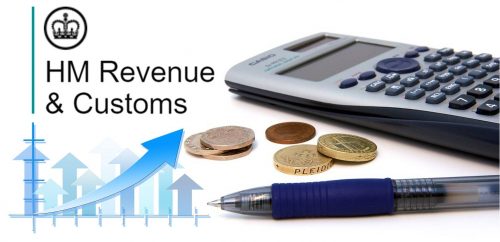The UK government should replace corporation tax with a system that taxes income distributed to shareholders, says a right-wing think tank in a new report.
The Institute of Economic Affairs (IEA) claim there is “a clear and straightforward case for
abolishing corporation tax in the United Kingdom.”
 The report argues that UK corporation tax is inefficient and should be replaced with a tax on earnings distributed to shareholders.
The report argues that UK corporation tax is inefficient and should be replaced with a tax on earnings distributed to shareholders.
The report, written by Diego Zuluaga, financial services research fellow at the IEA, describes ways in which economic developments “underscore the need for reform of the way in which capital income is taxed.”
For example, increasing globalization – plus the growing role of intangible assets (“the digital economy”) in value creation – are making it easier for capital to move around the world. While this is a good thing in that it helps raise living standards, it also gives multinational firms more scope for tax avoidance, says the report.
Ideas for radical reform
The report reviews ideas for radical reform of capital income taxation, and proposes a gradual shift to replace corporation tax with a tax on earnings distributed to shareholders as “the most suitable and efficient replacement.”
For example, one of the radical reforms it reviews is the proposal by former chancellor of the exchequer
Lord Lawson for corporation tax to be replaced by a tax on turnover.
However, a tax on turnover – which taxes revenue rather than profits – means loss-making firms would pay the same as profitable ones, and would cause great difficulties for struggling businesses.
Another disadvantage is it would eliminate the benefit of capital expenditure – making companies less keen to expand through spending.
To replace corporation tax with a system that taxes shareholders’ earnings not only overcomes the weaknesses of the current system, it also reduces incentives for avoidance and raises government revenue in a growth-friendly way, says the report.
It also argues that corporation tax is not an efficient way of raising government revenue because it deters growth, investment, and entrepreneurship.
Most of corporation tax ‘borne by workers’
There is also evidence, says the report, that most of the money raised via the corporation tax route is “borne by workers,” in that such a system results in lower capital investment in firms, which in turn lowers productivity.
Zuluaga reportedly says:
“Economic theory and evidence have increasingly shown corporation tax to be one of the most inefficient ways of raising government revenue. At a time of great change for the British economy, bringing our tax code into the 21st century is more important than ever.”
Following the Brexit referendum vote to leave the EU, the then chancellor of the exchequer, George Osborne, pledged to cut corporation tax from the current 20 percent to under 15 percent in order to encourage businesses to continue investing in the UK.
Osborne’s successor, Philip Hammond, said he was considering Britain’s need to “reset fiscal policy” but details would only be revealed in the Autumn Statement later this year.
Video about UK corporation tax
The following UK government video explains what corporation tax is and the types of profits it applies to:
